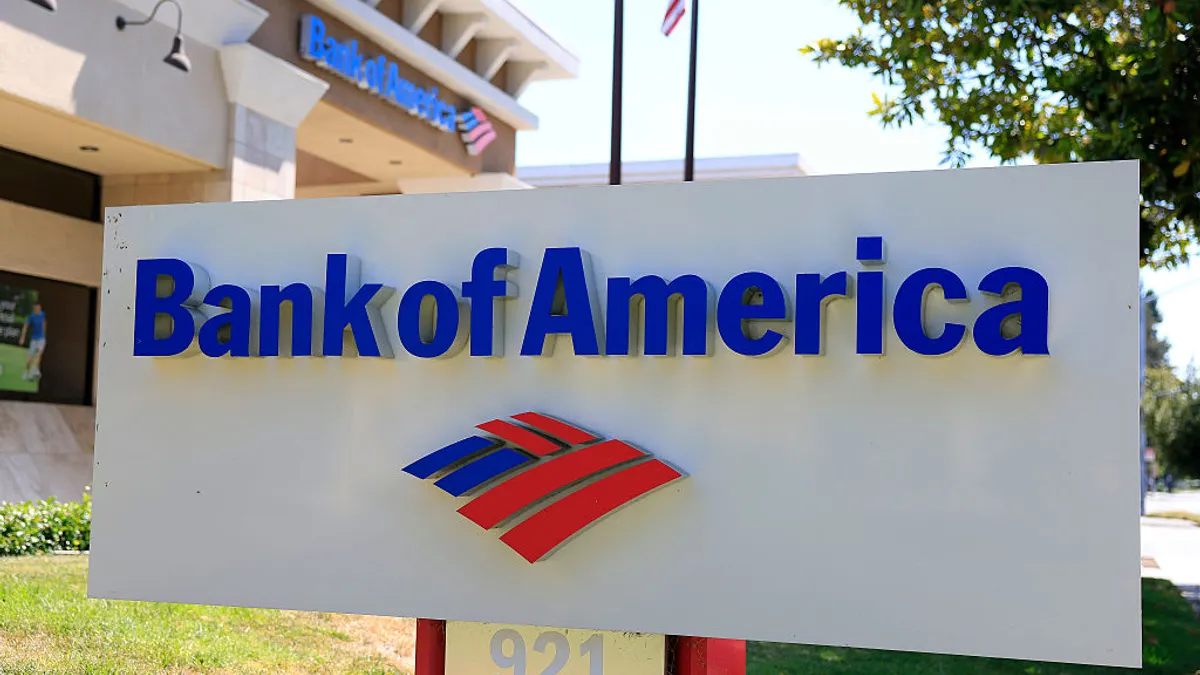Bank of America and BNY each filed motions Thursday to dismiss lawsuits filed against them last month by an alleged victim of disgraced financier and late sex offender Jeffrey Epstein.
Bank of America called Jane Doe’s suit “threadbare and meritless,” arguing that the plaintiff seeks to hold the bank liable “based on nothing more than allegations that it provided routine services to customers who at the time had no known connection to Epstein’s sex trafficking.”
Doe alleges Epstein’s trafficking operation wouldn’t have existed without banks providing special treatment to him and co-conspirators.
In her lawsuit, Doe said she opened an account at Bank of America in May 2013 at the direction of Epstein’s then-accountant, Richard Kahn, whom she said transferred about $14,000 into the account. Kahn regularly sent Doe money for rent through the account, she said. Money in the account was also used to “defraud immigration officials,” according to the lawsuit.
But transactions for those purposes would not have raised red flags the way large cash withdrawals would have, Bank of America argued Thursday to the U.S. District Court for the Southern District of New York.
“When this Court previously allowed some Epstein-related claims against banks to survive motions to dismiss, it did so largely based on those complaints’ non-conclusory allegations of non-routine services, such as giving Epstein large quantities of cash, helping him structure cash withdrawals to elude suspicion, delaying reports for thousands of suspicious transactions totaling more than $1 billion, and permitting the use of a subsidiary’s jet to transport young women,” Bank of America wrote. “No such allegations appear here.”
JPMorgan Chase agreed in 2023 to pay Epstein victims $290 million to settle a lawsuit against it. Deutsche Bank, a month earlier, agreed to pay $75 million.
Bank of America took care to note that it “opposes trafficking in all its forms.”
“This suit attempts to radically expand liability for banks, holding them liable for providing ordinary banking services to individuals one or more steps removed from a trafficker – far beyond what the [Trafficking Victims Protection Reauthorization Act] allows,” the bank argued. “[Doe’s] negligence claims fail because it was not reasonably foreseeable that Bank of America’s provision of routine banking services to Plaintiff would set in motion harms to her.”
BNY, for its part, blasted Doe’s lawsuit, saying it failed to include “a single plausible allegation” that the bank “had anything to do with [Epstein-related] crimes.”
“Across 216 paragraphs, the complaint never identifies a single BNY employee, or even a division of BNY, with whom Epstein supposedly dealt,” the bank wrote. “Indeed, the vast majority of the allegations in the complaint are generic assertions that are (aside from the defendant’s name) word-for-word identical to a complaint that the same lawyers filed against an entirely different bank on the same day they filed this case.”
The bank cited “precisely four paragraphs in the entire complaint that contain factual allegations unique to BNY, none of which alleges that Epstein ever opened or held accounts at BNY or was otherwise a customer of BNY.”
“These razor-thin allegations fail to state a claim, and the complaint should be dismissed in its entirety,” BNY argued.
Doe alleged BNY gave a line of credit to MC2, a modeling agency she accuses Epstein and associate Jean-Luc Brunel of using to traffic victims.
Oral arguments in the case are set for Dec. 15.














